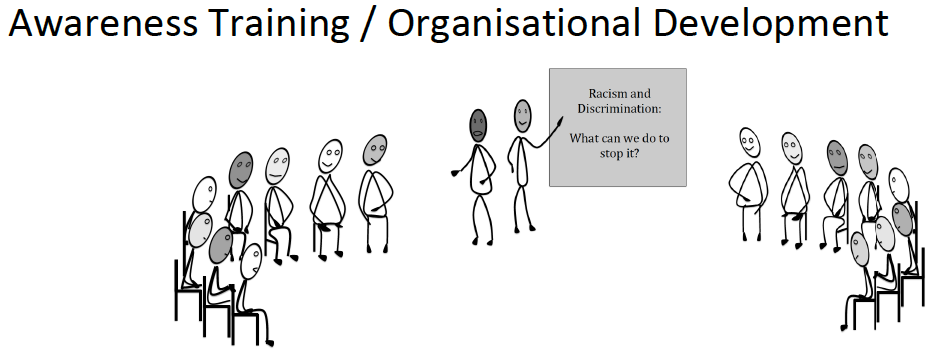
Seminars and Workshops
We understand our training offers as prevention work – that is, work that helps people become aware of racism and other forms of discrimination so that they themselves try not to discriminate or try to critically reform potentially discriminatory structures. Awareness trainings should enable participants to take on and adapt to the challenges of a “multicultural” society through a personal confrontation with their own learned images about themselves and others and with the reflection of their own social position. We always develop our trainings with the specific needs and the concrete organisational context of the client in mind, in order to help them develop an antidiscriminatory perspective on their work environment.
Our empowerment workshops are about strengthening people who are affected by discrimination, in particular by racism.
Diversity Organisational Development
It is difficult to change an organisation from the individual perspective. For this reason, we offer not only awareness training but also consultation in the development of organisational structures which deal with diversity and discrimination in an inclusive and sensitive way.
The more levels of the organization are involved in this process, the more effective it will be. We first sit down to identify the specific needs of the organisation. Then we develop a concept together with the organisation to critically examine different aspects and areas of work step by step and develop a strategy for dealing with them appropriately.
In doing so, BDB offers its own long-standing expertise and experience in developing new, creative solutions that are appropriate and effective for the individual organisational context. You are welcome to contact us about this.
